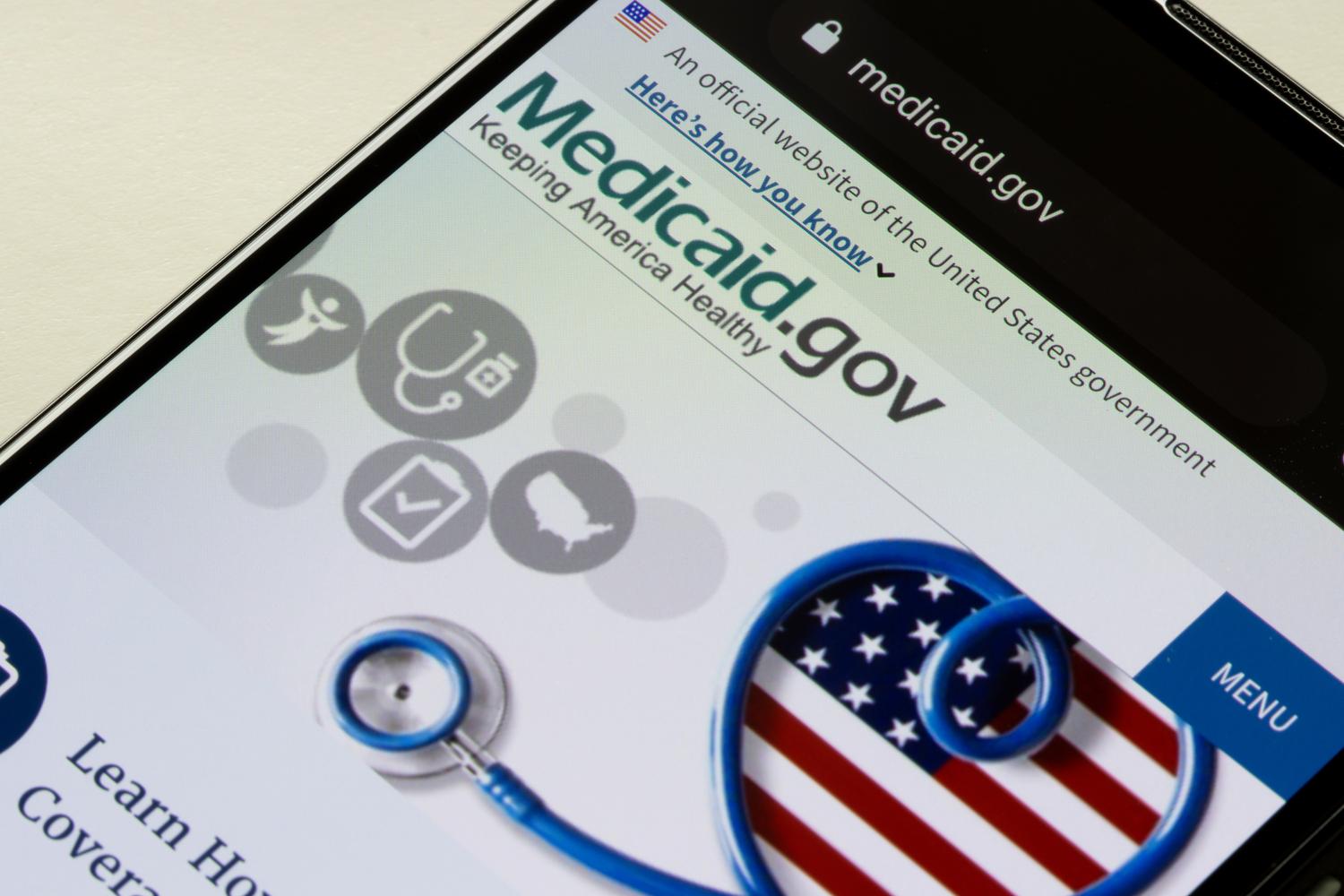Medicaid Disenrollment: A State-By-State Look at Redeterminations
As Medicaid disenrollment resumes, millions are expected to lose Medicaid coverage. Here's what timing and impact looks like for redeterminations, along with alternative solutions for coverage.
After the PHE was declared, the federal government provided additional Medicaid funding to states in exchange for states adopting a provision known as Continuous Enrollment. This provision meant that states could not conduct Medicaid eligibility reviews and remove people from the program, and was put in place to ensure that no one would lose health insurance during a time when medical care was needed so critically by so many.
However, with the PHE set to end on May 11, 2023, states are free to resume Medicaid eligibility reviews as early as April 1, 2023 – and now that the federally mandated Medicaid safety net is being removed, millions are at risk of losing their health care coverage.
If you’re losing your state Medicaid coverage, there are resources available to help you access affordable health care without insurance. You may be eligible for subsidies to make health insurance more affordable through healthcare.gov or state-based health insurance exchanges, and you can also refer to the U.S. Health Care Price Index (USHPI), which tracks what Americans are paying for cash-pay medical care in all 50 states.
If you have previously been on Medicaid, you may not be familiar with cash-pay pricing for medical care. A cash-pay price is simply what a doctor or health care provider charges a patient when a third-party payer, like insurance or a governmental entity, is not involved in the transaction. If you have recently become uninsured through losing Medicaid coverage, paying out-of-pocket as a cash-pay patient may become your new reality. This may seem daunting, but resources like the USPHI can be helpful to compare pricing and ensure that you’re getting the most affordable quality care possible.
When will Medicaid redeterminations and disenrollment begin?
As of May 2023, Medicaid disenrollment timing will vary state to state. Some states resumed the process of disenrollment in April, while others will recommence with redeterminations in May, June, July and October. Below are the most current numbers on state-by-state disenrollment and timing:
April 2023: Five states began disenrollment in April: AZ, AR, ID, SD and NH. In Arizona, enrollment declined by 54,871 from March to May 2023. In Arkansas, 62,711 enrollees were disenrolled, including 7,223 who were determined ineligible and 55,488 who were disenrolled for procedural reasons. In Idaho, New Hampshire and South Dakota, disenrollment data for April has not yet been made available.
May 2023: In May, 14 states will resume Medicaid disenrollment: CT, FL, IA, IN, KS, NE, NM, OH, OK, PA, UT, VA, WV and WY.
June 2023: In June, 21 states are expected to resume Medicaid disenrollment: AK, AL, CO, GA, HI, KY, MA, MD, ME, MS, MT, ND, NJ, NV, RI, SC, TN, TX, WA, WI and VT.
July 2023: Nine states have announced that they plan to resume Medicaid disenrollment in July: CA, DE, IL, LA, MI, MN, MO, NC and NY.
October 2023: Oregon is the only state that is expected to recommence Medicaid disenrollment in October.
Who will be impacted by upcoming Medicaid redeterminations and disenrollment?
Although all states will be ending the Medicaid Continuous Enrollment provision, some states will be more heavily impacted by redeterminations than others. Here’s a breakdown of the 10 states who will be most affected by the upcoming Medicaid redeterminations, along with the most updated cash-pay prices for popular medical services within each state:
Texas
With almost 1.8 million Texans expected to lose Medicaid coverage, Texas stands to be the state most heavily impacted by redeterminations. Despite upcoming coverage fluctuations, the cash-pay price of care has remained consistent. According to 2022 and 2023 data trends, the costs of mental health consults, prescription refills and telehealth visits in Texas have stayed steady:
- Mental Health Consult: $38.72
- Prescription Refill Appointment: $36.76
- Telehealth Visit: $37.80
Florida
An estimated 31% of Medicare beneficiaries will be losing coverage in Florida once the Public Health Emergency ends. This accounts for more than 1.4 million citizens. According to the state’s USHPI data, Floridians can expect to pay the following for medical services:
- Mental Health Consult: $39.52
- Prescription Refill Appointment: $36.59
- Telehealth Visit: $40.95
Indiana
Over 565,000 people are predicted to lose Medicaid coverage when the safety net is removed, accounting for nearly 30% of Indiana’s Medicaid program recipients. If you live in Indiana, cash-pay prices for the following medical services look like this:
- Mental Health Consult: $49.22
- Prescription Refill Appointment: $43.43
- Telehealth Visit: $45.12
Virginia
An estimated 26% of Medicaid recipients in Virginia will be losing coverage due to redeterminations. This equates to over 479,000 citizens who will no longer be insured. However, USPHI data shows affordable cash-pay price trends for the following medical services in Virginia:
- Mental Health Consult: $47.20
- Prescription Refill Appointment: $40.90
- Telehealth Visit: $43.20
Colorado
It’s estimated that over 25% of Colorado’s Medicaid enrollees will be removed from the program once Medicaid reviews begin again, equating to about 394,000 people. According to the USHPI, here’s what Colorado citizens can expect to pay for services when it comes to continuing care without coverage:
- Mental Health Consult: $40.22
- Prescription Refill Appointment: $37.31
- Telehealth Visit: $39.88
Minnesota
About 383,000 Minnesotans are predicted to lose Medicaid coverage when the safety net is removed, accounting for nearly 30% of the state’s Medicaid program recipients. If you live in Minnesota, cash-pay prices for the following medical services look like this:
- Mental Health Consult: $48.00
- Prescription Refill Appointment: $47.96
- Telehealth Visit: $51.82
Wisconsin
With over 330,000 citizens expected to lose Medicaid coverage, it’s predicted that the state’s redeterminations will affect over 26% of the program’s beneficiaries. According to 2022 and 2023 data trends, however, the costs of mental health consults, prescription refills and telehealth visits in Wisconsin have stayed steady:
- Mental Health Consult: $60.98
- Prescription Refill Appointment: $43.74
- Telehealth Visit: $47.42
Utah
It’s predicted that 32.2 % of Utah’s Medicare beneficiaries - about 226,000 citizens - will be losing coverage once the Public Health Emergency ends. According to the state’s USHPI data, Utah citizens can expect to pay the following for medical services:
- Mental Health Consult: $42.60
- Prescription Refill Appointment: $42.07
- Telehealth Visit: $46.59
Nevada
An estimated 25.8% of Medicaid enrollees in Nevada will be losing coverage once the state’s redeterminations commence again, equating to over 221,000 citizens who will no longer be insured. However, USPHI data shows affordable cash-pay price trends for the following medical services in Nevada:
- Mental Health Consult: $39.88
- Prescription Refill Appointment: $39.25
- Telehealth Visit: $40.33
Maine
An estimated 25.1% of Medicaid enrollees in Maine will be losing coverage once the state’s redeterminations commence again. This equates to nearly 100,000 citizens who will no longer be insured. However, USPHI data shows affordable cash-pay price trends for the following medical services in Maine:
- Mental Health Consult: $50
- Prescription Refill Appointment: $40.31
- Telehealth Visit: $40.86
How can I afford medical care if I lose Medicaid coverage?
If you’ve lost Medicaid coverage, there are plenty of ways to reduce healthcare costs and ensure that you’re continuing care regardless of your insurance status.
Consider some of the following tips to keep money in your wallet:
- See if you are eligible for health insurance subsidies: Check healthcare.gov to see what is available -- you may be able to afford a plan from the federal or state exchanges.
- Consider paying in cash: You might be surprised to know that you can negotiate a cash price for procedures at the doctor’s office, and that those rates can often be much cheaper than what insurance companies have arranged. Simply ask your surgeon or healthcare provider for their cash-pay rates before your next visit. Don't assume that in-network rates are always the best option.
- Shop around for providers: Prices for healthcare services can vary greatly from one provider to another, even within the same state or region. You may be surprised at how much you can save by comparing prices before making a decision. You can also easily compare pricing on sesamecare.com.
- Shop generic: Rushing to the big-name brand isn’t always the best solution. Most brand-name drugs have a generic version with the same formulation and strength. According to the Food and Drug Administration (FDA), generic drug prices can be 20-70% less than their name-brand counterparts. Be sure to compare generic and name-brand counterparts next time you’re at the pharmacy or booking a doctor’s appointment, and you’ll be amazed by how much you can save.









